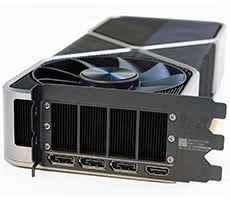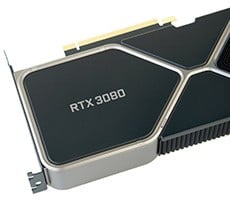Intel Core i7 975 Extreme Edition Processor Review
Introduction & Specifications
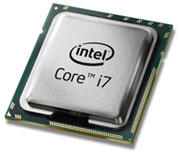 When you consider Intel's recent success at introducing new, cutting-edge processor architectures as of late, you can't help but appreciate the fact that the company is executing extremely well. The cold, hard fact of the matter is, even their last generation Core 2 architecture competes admirably with AMD's most recent update of the Phenom II, dollar for dollar and clock for clock. In fact, Intel's Core 2 architecture has done so well, that further roll-out of Intel's newer Core i7 line-up has been limited, no doubt in part because Intel doesn't absolutely need their fledgling new chip architecture to compete vigorously with their rival. There's no question, AMD's Phenom II is a solid alternative to the Core 2 but playing catch-up to Intel's legacy architecture is still not a very exciting position to be in, obviously.
When you consider Intel's recent success at introducing new, cutting-edge processor architectures as of late, you can't help but appreciate the fact that the company is executing extremely well. The cold, hard fact of the matter is, even their last generation Core 2 architecture competes admirably with AMD's most recent update of the Phenom II, dollar for dollar and clock for clock. In fact, Intel's Core 2 architecture has done so well, that further roll-out of Intel's newer Core i7 line-up has been limited, no doubt in part because Intel doesn't absolutely need their fledgling new chip architecture to compete vigorously with their rival. There's no question, AMD's Phenom II is a solid alternative to the Core 2 but playing catch-up to Intel's legacy architecture is still not a very exciting position to be in, obviously.
Thus far there have been a mere three different models of Intel's new Core i7 processor that have been released to any channel, OEM or retail - the Core i7-920, Core i7-940 and the flagship Core i7-965 Extreme Edition. With clock speeds starting at 2.66GHz and scaling to 3.2GHz, Intel's new Core i7 proverbially lights up anything from AMD's high end line-up right now, even comparing the chip's slowest speed bin, never mind at like clock speeds. That said, the semiconductor business is pretty much a ruthless and relentless game of one-upsmanship; or in Intel's case currently, perhaps its two or three-up. As such, you can be sure Intel is looking for another kill shot, whenever they can.
Today Intel is finally releasing new Core i7 models and speed bins to the market, as well as announcing a new flagship chip, the Core i7-975 Extreme Edition. Though it will definitely command a hefty price tag, at a stock clock speed of 3.33GHz and Intel Turbo Boost speeds at 3.45GHz (all cores) and 3.6GHz (single core), you can bet this new Core i7 is one hot-rod of a quad-core CPU. In the pages ahead, we'll wind it out around the test track and show you what the fastest desktop processor on the planet can do when it's tuned up for a touch more horsepower at the factory and made ready for production.

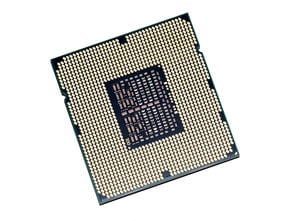
Intel Core i7 975 Extreme Edition Processor - Engineering Sample
|
|
Specifications |
Core i7 975 Extreme Edition |
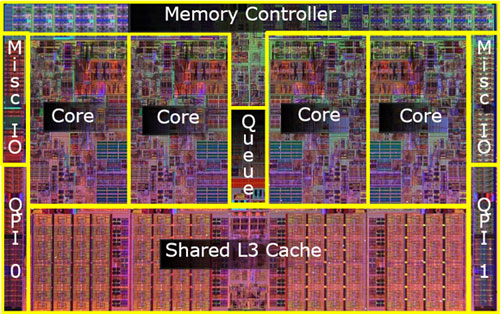
45nm Nehalem Quad-Core Processor Die Map
Intel Core i7 Products Launching This Week
The new Core i7 chips being announced today are Intel's new top-dog, the Core i7-975 Extreme Edition, as well as the new upper mid-range Core i7-950, which in fact will supplant the Core i7-940. These new chips share identical Intel Nehalem-based microarchitectures, with the Core i7-975 offering a faster 6.4GT/sec QPI (Quick Path Interconnect) serial link to Intel's X58 Express Northbridge chipset, as well as a faster 3.33GHz core clock speed with a stock 25X multiplier and a 133MHz reference clock. The Core i7 950 has a 23X stock multiplier that is locked for higher multiples but can be dialed down, while the Core i7-975 is unlocked for higher multiples as well, since it is an "Extreme Edition" product.
If you'd like a refresher course on Intel's Core i7 processor technology, we'd suggest taking a look at our Core i7 launch article, as well as our recent Core i7 overclocking article and how-to video. These articles and our video spotlight will provide a solid reference, should you feel the need for a deep dive understanding of the technology, Intel's new platform, and how to maximize its performance.

